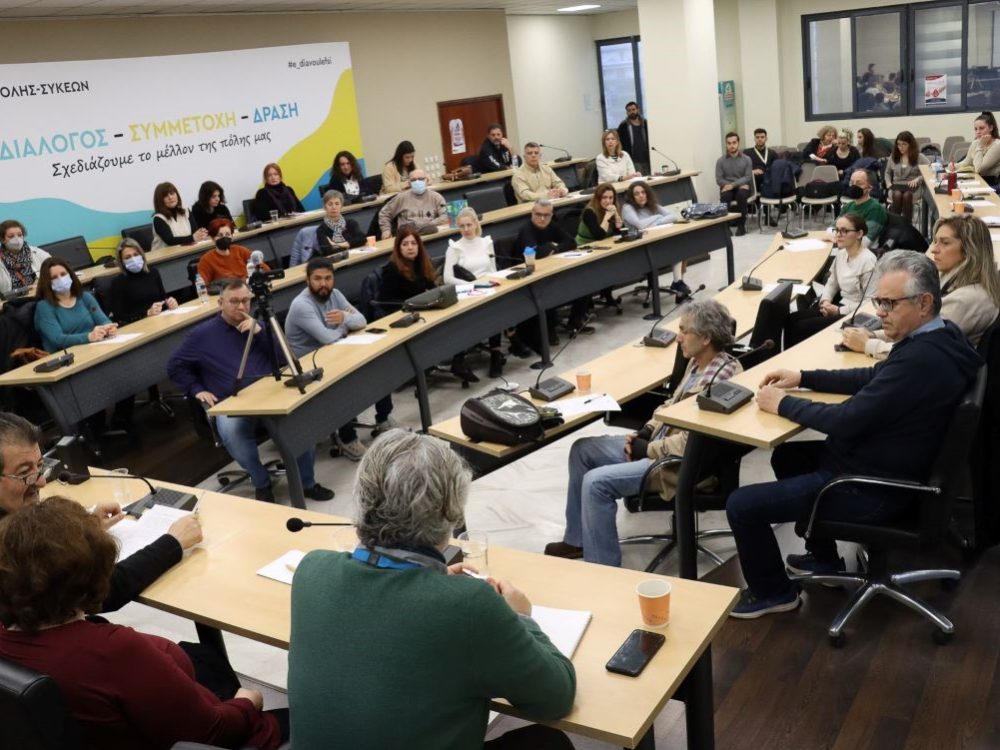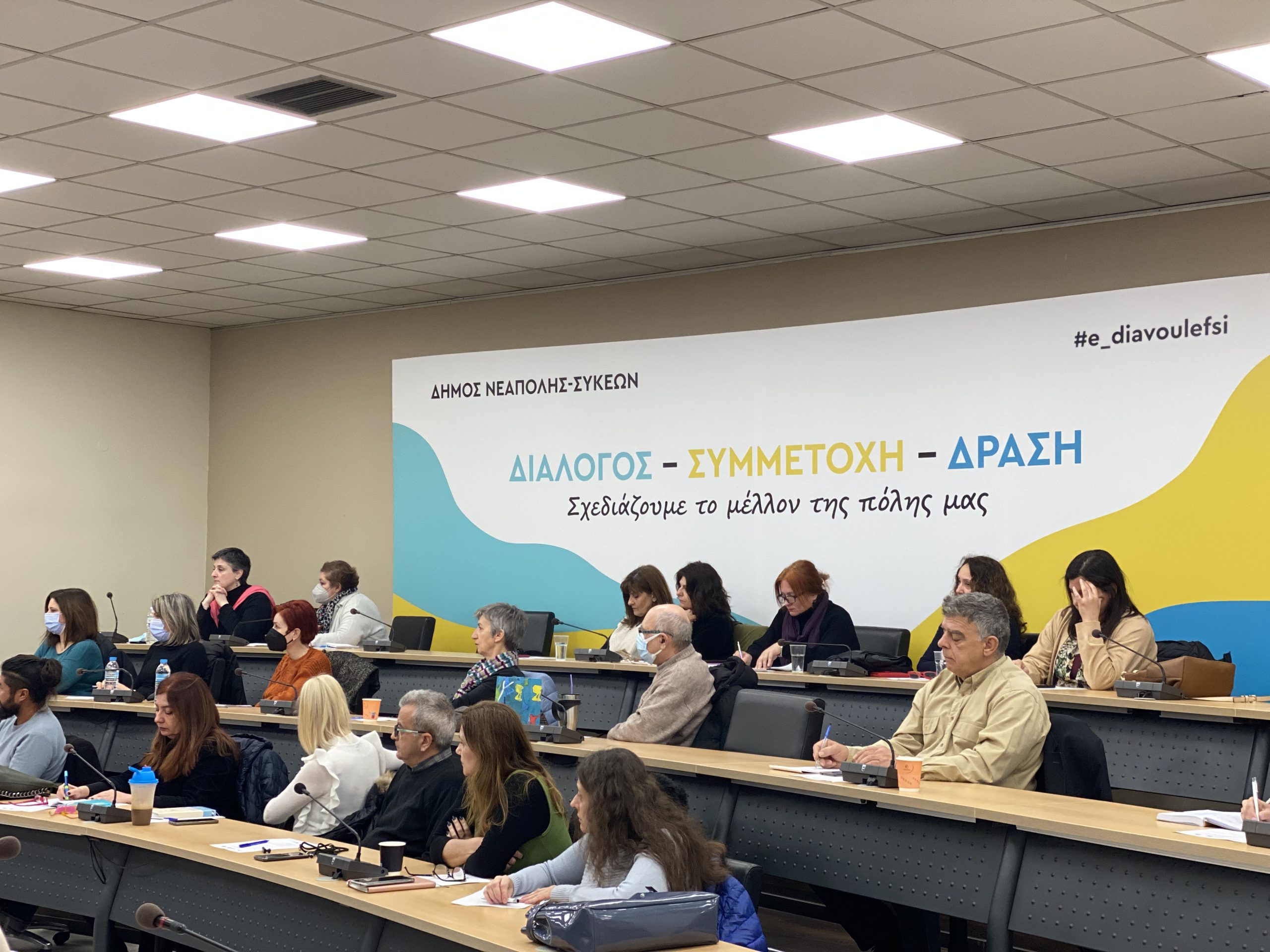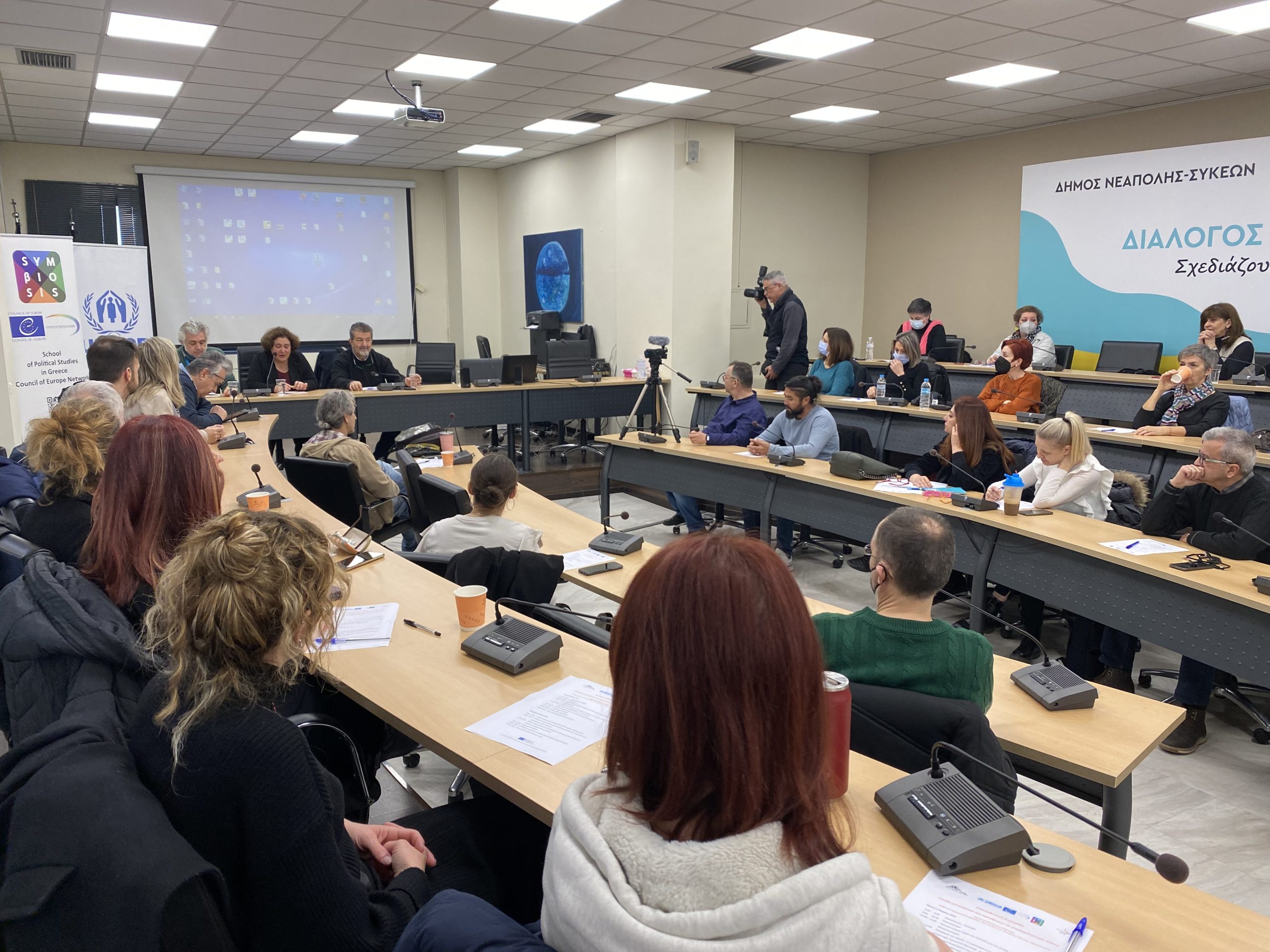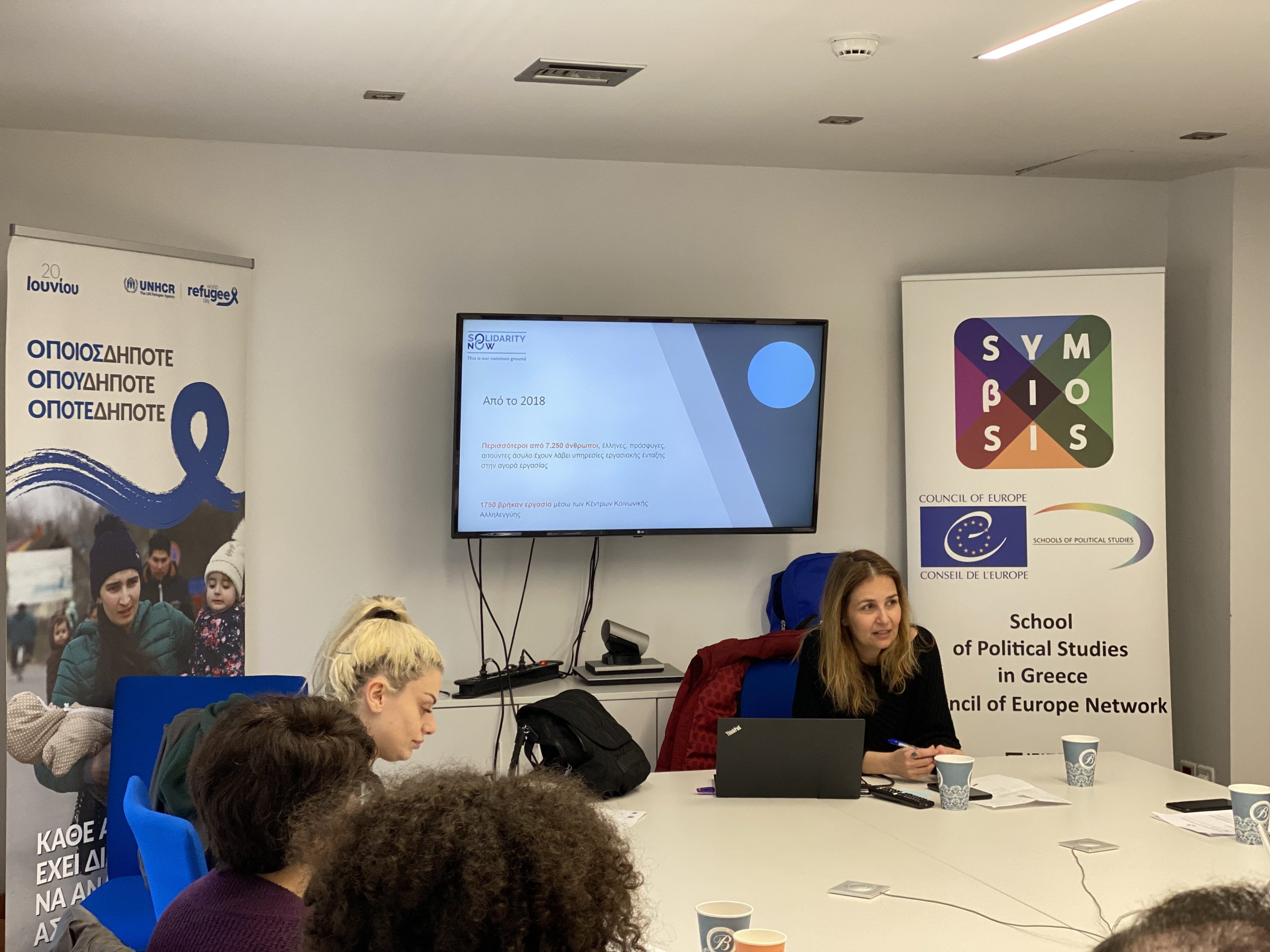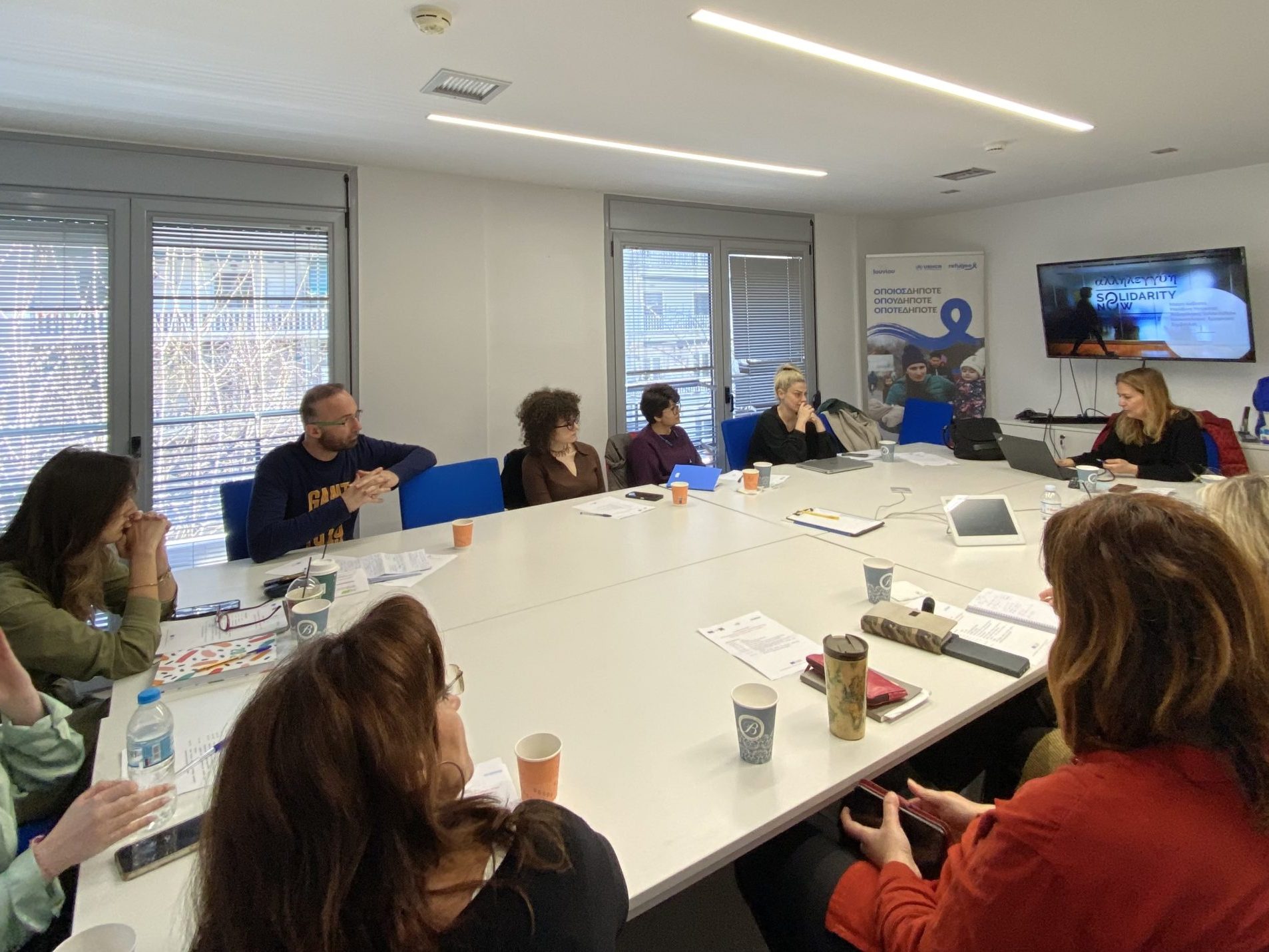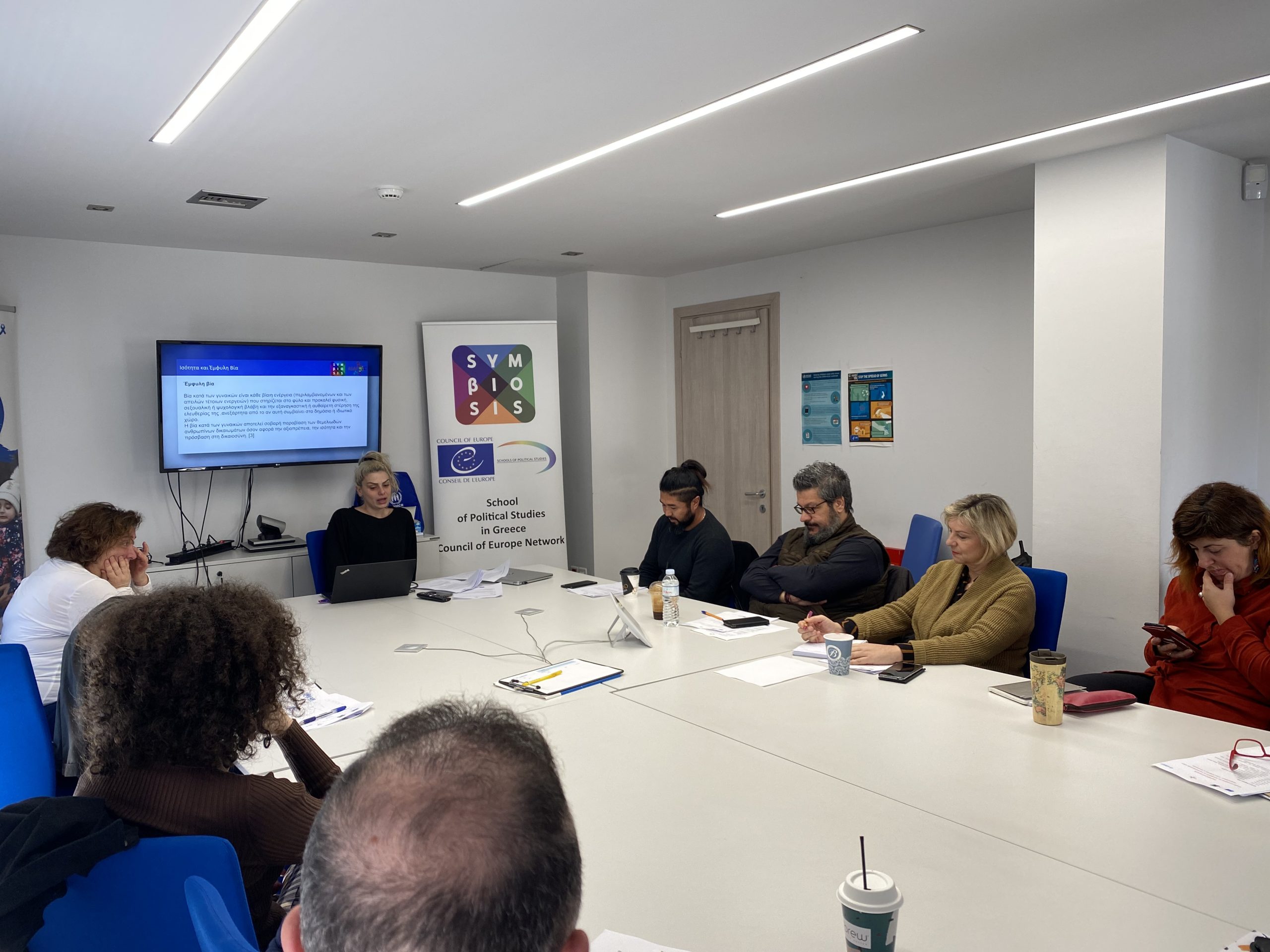Seminar on Social Inclusion, Migration and Intercultural Cities
The Seminar “Social Inclusion, Migration and Intercultural Cities,” organised by the Symbiosis-Council of Europe School of Political Studies in Greece with the support of the Municipality of Neapoli-Sykies and the UNHCR Office in Thessaloniki. The Seminar was designed to enhance the knowledge and skills of public service providers and representatives of local authorities, civil society organisations and media in the field of social inclusion.
The first part of the training took place at the municipality centre of Neapoli-Sykes with the participation of 50 professionals. Among them were public servants from municipal services and various social service sectors, including healthcare, housing, and education, as well as educators, social workers, and psychologists. Aiming to unpack various aspects related to the integration of migrants and refugees and promote the development of more inclusive cities, the two-day capacity building training, featuring expert-led modules, covered a wide range of topics.
On the first day, discussions revolved around integration, access to citizenship, the social rights of refugees, housing, and combatting gender-based violence. The following day saw further exploration into topics such as labor market integration, child protection, adult migrant support, education accessibility, and the cultivation of intercultural cities. Noteworthy was the contribution of participants, who actively shared personal experiences, voiced varied perspectives, and highlighted pertinent concerns, enriching the depth and breadth of the research discourse.
On March 6th, the second part of the event focused on investigating different aspects related to the integration of migrants and refugees and promoting the development of intercultural competences. The Council of Europe Reference Framework of Competences for Democratic Culture (RFCDC) was elaborated, providing educators and social actors with a reference and toolbox for designing, implementing, and evaluating educational interventions. Presenters from previous days complemented the presentation by discussing how the RFCDC could contribute to understanding and developing action plans in various social sectors.
Time was allocated to co-design, where the participants discussed the needs, identified possibilities, and proposed solutions and activities that could be implemented in their respective fields. The facilitators of the program provided guidance and support to the participants as they worked together to design solutions and activities that were relevant and applicable to their specific contexts. Through the co-design, participants were able to share their diverse perspectives and experiences, which helped to enrich the learning process for everyone involved.



